No longer a ‘key ally’: Why Israel’s comments on Australia matter
Benjamin Netanyahu once proclaimed Israel and Australia were “extraordinary friends” – until now. Here’s why we’ve fallen out – and why it matters.
National
Don't miss out on the headlines from National. Followed categories will be added to My News.
The office of Israeli Prime Minister Benjamin Netanyahu has criticised Australia after Canberra opted to vote in favour of Palestinian statehood at the UN this week.
In a statement to The Australian, Mr Netanyahu’s office said Australia may no longer be a “key ally” of the Jewish state.
A day later, he publicly eviscerated Prime Minister Anthony Albanese after a shocking arson attack on a Melbourne synagogue, saying it was “impossible to separate this reprehensible act from the extreme anti-Israel position of the Labor government”.
Read More: Netanyahu unleashes on Albo over synagogue firebombing
Get up to date on the issue with this explainer.
WHAT WAS THE PALESTINIAN VOTE AT THE UN?
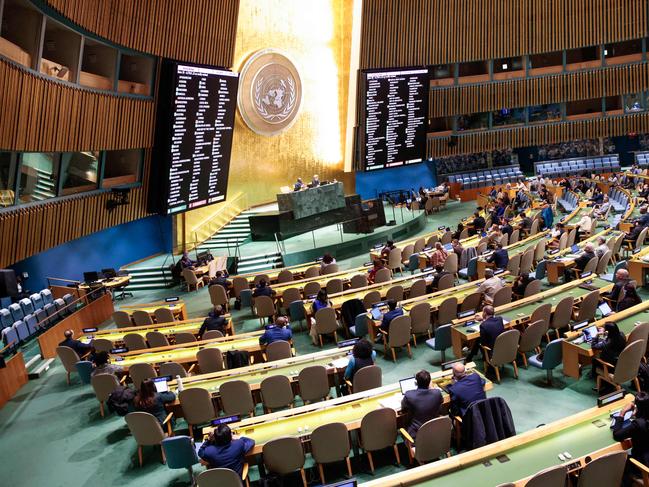
On Tuesday this week, the UN General Assembly called for the creation of a Palestinian state, and for Israel to withdraw from the West Bank, the Gaza Strip and east Jerusalem.
The resolution passed 157 votes to eight; other western countries who voted in favour of the resolution included the UK, Canada and New Zealand.
The eight countries who opposed the motion were Argentina, Hungary, Israel, the Federated States of Micronesia, Nauru, Palau, Papua New Guinea and the United States.
Another seven nations abstained from voting.
The motion also called for a revitalisation of international talks to progress a two-state solution, to be held in New York in June 2025, with France an Saudi Arabia acting as co-chairs.
WHY WAS AUSTRALIA’S VOTE CONTROVERSIAL?
Australia’s vote in favour of the motion marked a shift and was branded a “flip flop” and “disappointing” in comments from Mr Netanyahu’s office.
“Awarding anti-Semitism and terrorism with a state in the heart of the Jewish ancient homeland and cradle of civilisation will invite more terrorism and more anti-Semitic riots at campuses and city centres, including in Australia.”
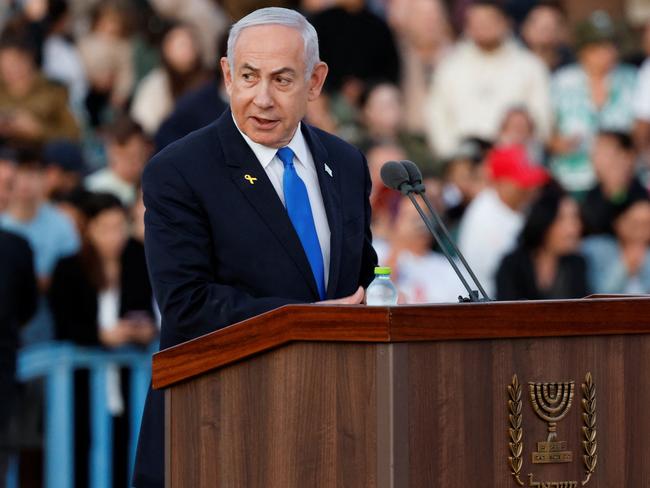
While the terrorist organisation Hamas was responsible for the October 7, 2023 massacre of Israeli citizens, that attack has not yet been denounced by the Palestinian Authority, the statement from Mr Netanyahu’s office noted.
“To the contrary, they have embraced those atrocities that included the rape, murder and beheading of Jews. It’s a shame that the current Australian government wants to award these savages with a state.”
The comments from Mr Netanyahu’s office also marked a pronounced shift. When the Israeli Prime Minister visited Australia in 2017 he said the two countries were celebrating a century of friendship.
“I always remember that it was Australian Lighthorse that liberated Beersheva, an old, old city in our history, exactly 100 years ago. We have been extraordinary friends ever since,” he said at the time.
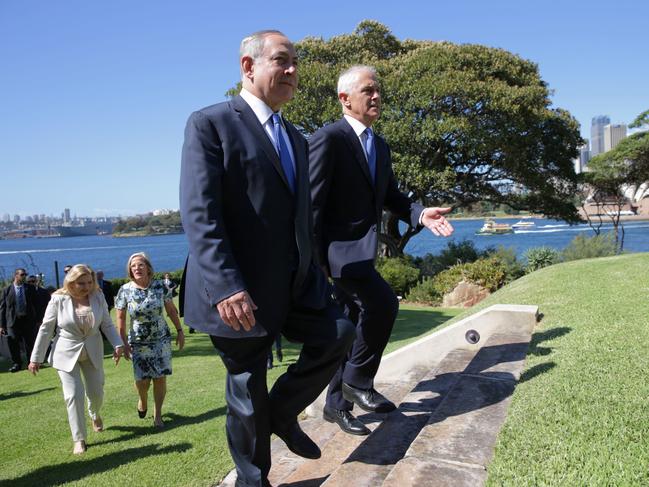
WHAT IS THE POLITICAL REACTION TO AUSTRALIA’S UN VOTE?
Various politicians, including Opposition leader Peter Dutton and former Labor MP Michael Danby, have accused the Albanese government of “selling out” Israel to curry support among voters in electorates in Western Sydney with strong Muslim populations.
The Executive Council of Australian Jewry president Daniel Aghion KC slammed the Albanese government’s change of position.
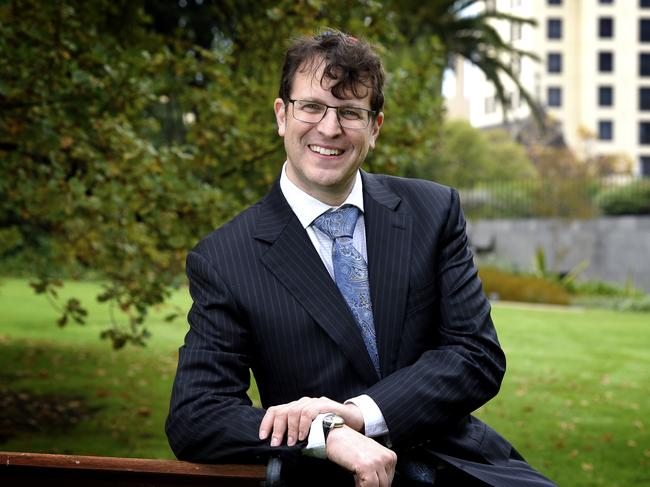
“This is a shameless pursuit of a domestic political agenda that puts Labor’s aspirations in vulnerable seats ahead of historic and principled support for a democratic ally. It makes a mockery of Labor’s pledge to the Executive Council of Australian Jewry [ECAJ] before the last federal election to ‘never play domestic politics with Australia’s foreign relations’. The ECAJ was also told that ‘Labor is a strong supporter of the State of Israel and that will never change’. Few people in the Jewish community or wider community would see Labor as having fulfilled that commitment. For some time now, this government has been chipping away at bipartisan support for Israel and a negotiated end to the conflict. After this latest significant shift, there is very little left.”
The co-chief executive of the ECAJ, Peter Wertheim, said the organisation had been “overwhelmed with messages of support for Israel from across Australia by people who share our view that the government is wrong on this issue”.
“The people of Australia love freedom and democracy as much as Israelis do, and should always be regarded as a key ally by Israel even when the government lets us down,” he said.
Asked about the comments from Mr Netanyahu’s office on Friday morning, Deputy Prime Minister Richard Marles defended Australia’s recent UN vote.
“We’re a close friend, and we don’t see that there is any change in our friendship, our relationship, our support for Israel,” he said. And a two-state solution has been “the bipartisan policy of our nation for decades,” he added.
WHAT WAS THE RATIONALE FOR AUSTRALIA’S CHANGED STANCE?
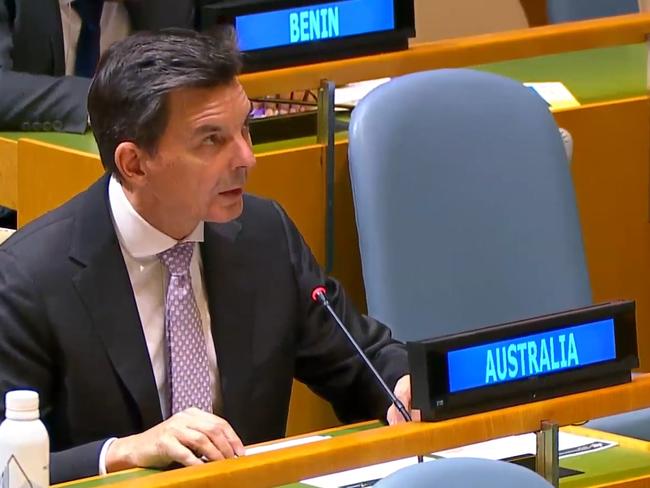
In addressing the General Assembly, Australia’s ambassador to the UN,
James Larsen, said a two-state solution “remains the only hope of breaking the endless cycle of violence, the only hope to see a secure and prosperous future for both peoples”.
HOW DOES AUSTRALIA USUALLY VOTE ON ISRAEL ISSUES AT THE UN?
According to the UN Watch Database, there have been 154 resolutions pertaining to Israel since the Jewish state was established in 1947.
Australia has voted against Israel on 34 occasions, and for Israel on 59 occasions. With the remaining 61 resolutions, Australia has abstained from voting.





